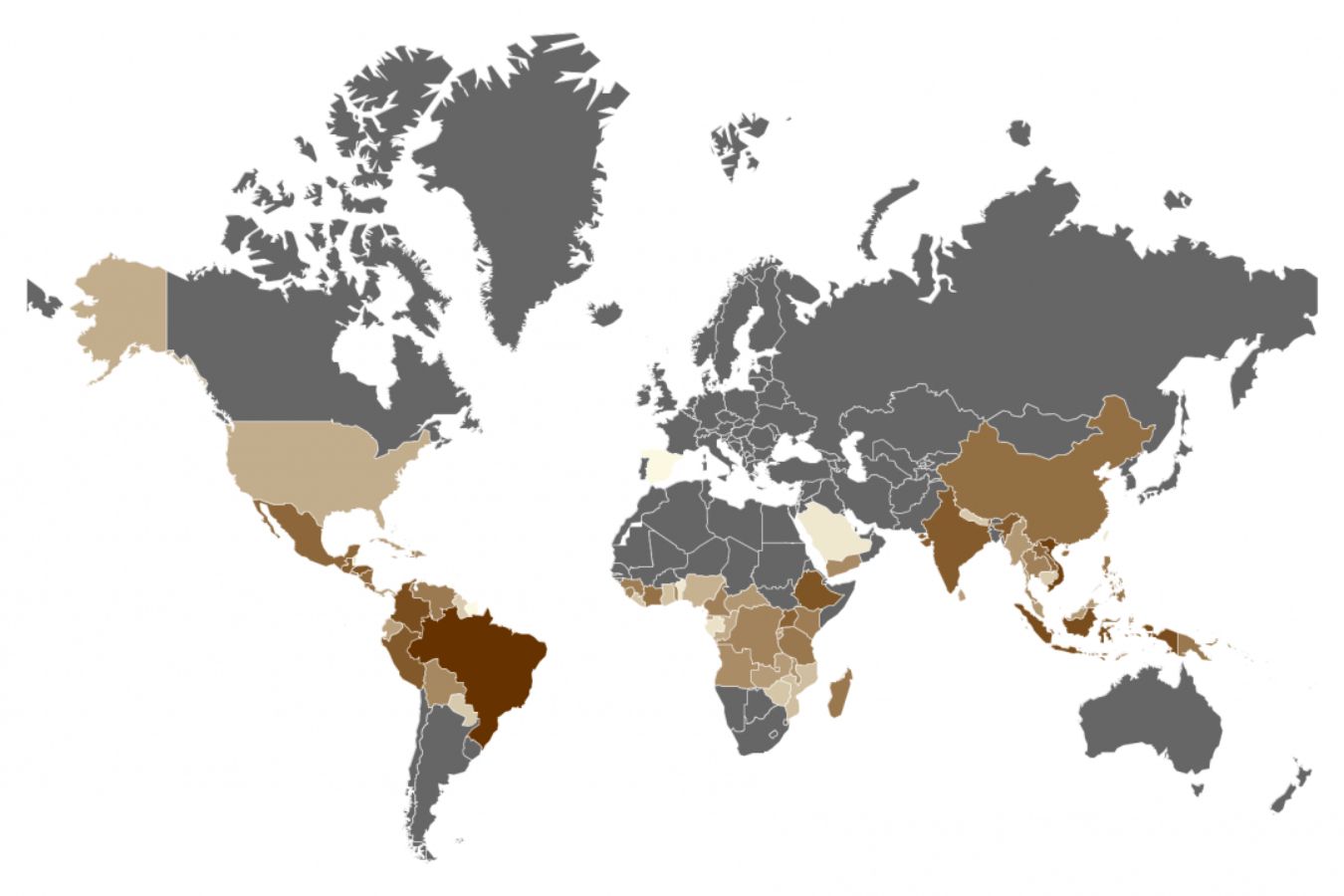
World coffee production: How does coffee change the world? In the 16th century, when coffee was introduced in Europe, it was thought that it was a drink that made women feel cold and arid, so a law giving husbands the right to forbid their wives from drinking coffee was introduced. be executed.
Coffee was once considered a hypnotic flavoring favored by only the upper classes. Later, the drink became popular among ordinary people as an inspirational stimulant, used in middle-class kitchens, for couples’ dates, and to keep away. Dispel sadness loss. The coffee shop became a place for dating, essential gatherings, meeting partners, and writing literature. The French Revolution and the American Revolution were planned in cafes.
Coffee has become a popular culture in the West, entering poetry, music, and painting as a matter of course. Even in Japan, which is famous for its tea ceremony culture, coffee has been able to squeeze in since the 1990s and quickly “beat” tea, becoming the most popular beverage in the land of the rising sun.
 Coffee was discovered thanks to a shepherd named Kaldi in Ethiopia.
Coffee was discovered thanks to a shepherd named Kaldi in Ethiopia.Discovered more than 1,000 years ago thanks to a shepherd named Kaldi in Ethiopia, coffee now has 500 million “followers,” from hard laborers in Kenya to the bustling entertainment district. Starbucks. In a world of more than 6 billion people, coffee has become an indispensable beverage for cultures across continents. If Ethiopia is the birthplace of coffee, Yemen nurtures mature coffee.
The first people to use coffee were the clergy; this habit spread to the pure laborer. The entire Arabian peninsula has become a fertile ground for coffee culture. By the 15th century, Mecca was both the political center and the birthplace of coffee culture. Coffee is a social drink that also helps clear thinking. Bach, Beethoven, Balzac are all “addicts” to coffee.
World coffee production: When coffee was introduced in Europe in the 16th century, it was thought that it was a drink that made women feel cold and dry, so a law gave husbands the right to forbid their wives from drinking coffee. Perhaps that is why today, fewer women drink coffee than men.
 Café in Paris (1789).
Café in Paris (1789).
Coffee was once considered a hypnotic flavoring favored by only the upper classes.
The modern coffee industry was born in the late nineteenth century in America during the golden age of capitalism. At the end of the Civil War, Jabez Burns invented the industrial coffee roasting system. Later, railroads, telegraphs, and steamboats revolutionized the communication and distribution of coffee, and newspapers, magazines, and lithographs helped create epic advertising campaigns.
While Mongolia has built up a dynamic coffee market, Brazil is planting thousands of coffee trees frantically. The result was a catastrophic decline in coffee prices, the beginning of bankruptcy. But workers still do not stop growing, harvesting, and processing coffee. So by the beginning of the twentieth century, coffee had become a primary consumer product, widely advertised around the world.

The catastrophic decline of coffee prices, the beginning of bankruptcy, but workers still do not stop growing, harvesting, and processing coffee.
However, coffee is not an easy crop. The quality of coffee beans depends on many factors such as seedlings, soil conditions, climate, roasting, grinding, shelf life, and preparation and reduction. According to modern coffee experts, it is a sensitive drink. According to modern coffee experts, four essential ingredients blend to create a cup of coffee, including aroma, visual appearance, and acidity level. In addition to the scent, the feeling of the “weight” of the coffee in the mouth when enjoying is significant. Coffee must be “rolled” around the tongue and throat before being loaded into the stomach. The acidity is shown in the color and consistency of the coffee. And the taste of the coffee must be so subtle that it causes an intoxicating euphoria in the taste buds.